It’s not often when you find a film that examines and celebrates science and faith, let alone blending them for a compelling story, but that’s exactly what ASSASSIN 33 A.D. does. Then toss in a lot of action and time travel and you have yourself an interesting and engaging film.
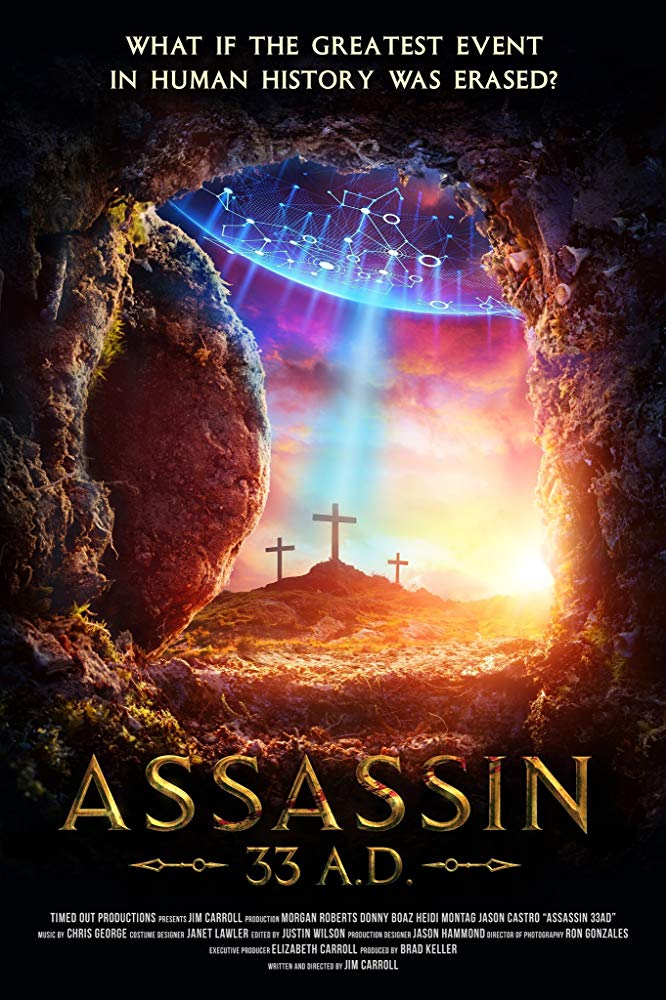
Typically, faith-based films go to extremes. And while there have been some exceptions, as a rule, they are predictable and for the devout. Someone has a crisis of faith and finds redemption with the supporting events being predictable, dramatic, and ultimately, visually beautiful with angelic intervention. Some faith-based films push the envelope to such extremes so as to rival the Pentecostal fire and brimstone of an “Elmer Gantry” or Aimee Semple McPherson. And there’s nothing wrong with any of that. But what we haven’t seen is a film that takes risks and ventures into territory reserved for films like “Primer” or “Safety Not Guaranteed” or even a “horror” film like “The Lazarus Effect”, with theological arguments built on top of science or medicine or in this case, time travel, not to mention altering the Biblical timeline of the crucifixion and resurrection.
We initially meet Brandt and his beautiful family. A decorated former military man, he has taken a job heading security for some top-secret company. A vehicular collision kills his wife and daughters leaving Brandt as a man hating life and God.
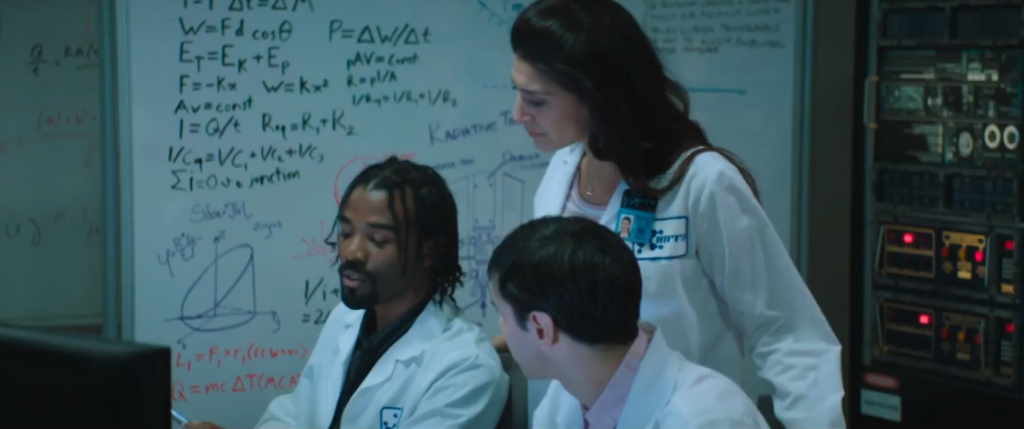
Shifting gears, we meet up with genius grad students, Ram, Felix, Simon, and Amy who are working on a hush-hush project involving matter transference for a non-specific global company run by a well-dressed and worldly Arab named Ahmed. And as it turns out, Brandt is the head of security for Ahmed’s company.
Shared religious threads run among our principals. Brandt is having a crisis of faith; Ahmed, a devout Muslim, watched his parents be executed when he was a young child which, as we quickly learn, has skewed his vision of the world; Ram believes only in science and that there is no God; Amy is a devout Christian and so much so that she has a Bible app on her phone.
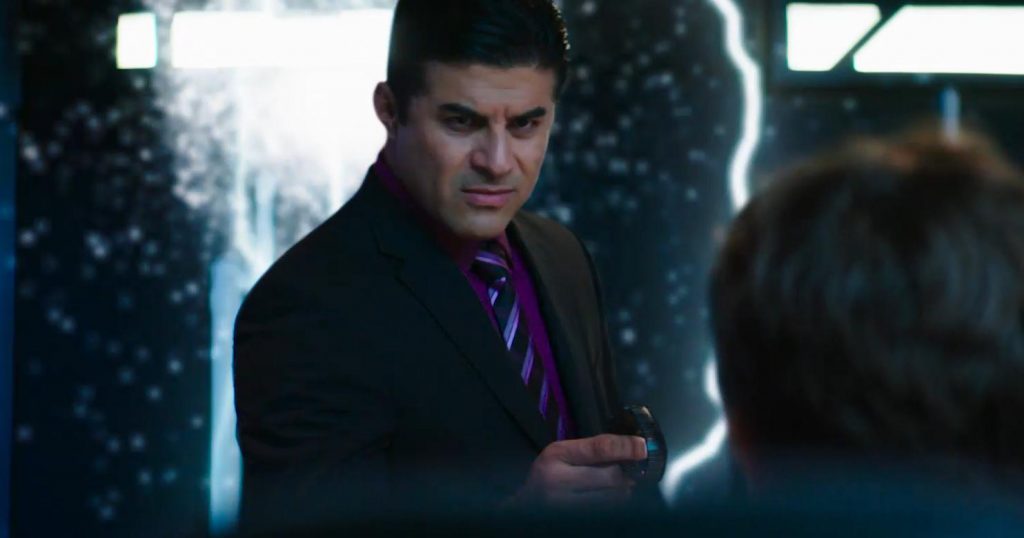
And while Ram, Amy, Simon, and Felix are already working tirelessly on their matter transference project, Ahmed pushes them even harder, especially when he sees via surveillance that not only does the team find the secret to matter transfer, they discover the secret to time travel. This by-product discovery causes an extremist shift within Ahmed as his true nature rises to the surface. He blames Jesus Christ and Christianity for the death of his parents; believes that Allah is the only true God; and with time travel, he can now go back and right the wrongs of the world by killing Christ before the crucifixion and resurrection.
Having already discovered that Ahmed has been in bed with an adversarial Middle Eastern leader hellbent on waging World War III through matter transference technology with troops and weaponry, Ram realizes that they must destroy “Einstein” as the team has named the project; something that becomes paramount when Ram learns of Ahmed’s ultimate goal of killing Christ.

Playing on Brandt’s own grief and hatred for God, Ahmed uses him to send a team back in time to carry out his true mission. What follows is where ASSASSIN 33 A.D. heads into choppy cinematic waters.
Going back and forth repeated times thru the time continuum, introducing guns into the biblical world, killing Roman soldiers with 21st-century expediency and bloodshed, multiple versions of individuals are co-existing in the same planes (a time travel no-no) and crossing with themselves, etc., the film becomes convoluted to the point of excess. A scorecard is needed to keep track of who’s where when. But somewhere in the confusion, each of our young geniuses have their faith and conviction tested when they suffer individual losses of varying nature and degree, and it’s how each deals with adversity that shines through and keeps one’s interest amidst the murder, mayhem, and chaos.
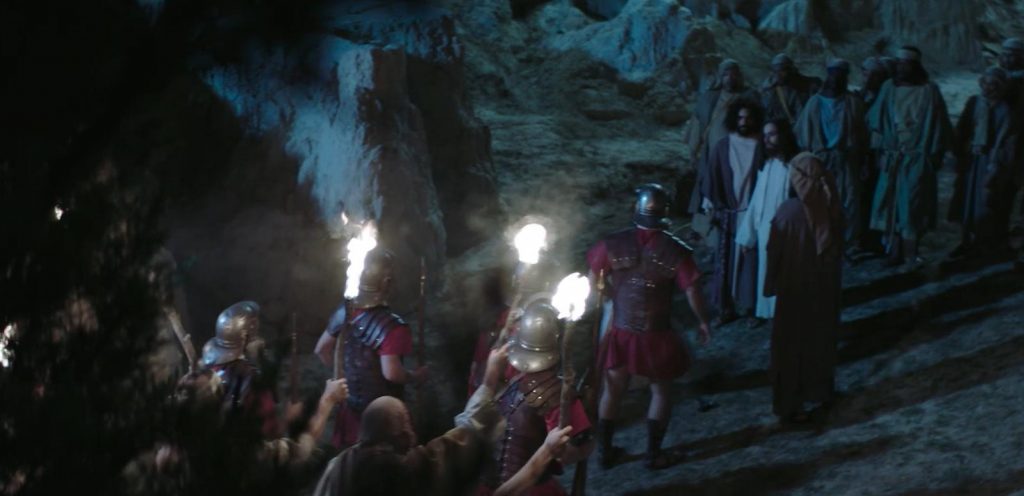
Production values are solid and none moreso than the biblical sequences with the crucifixion and a beautiful rendering of the Garden of Gethsemene and the Garden Tomb, Ron Gonzalez’ cinematography of which is nicely lit and lensed with a warming intimacy. Equally impressive is the VFX time travel. Quick and clean.
Although some of the dialogue is stilted and feels forced, a standout is that for Lamar Usher’s Simon. Contemporary and humorous with modern-day references in an ancient world, references that only Jesus understands as he is the only one who knows English (humorous in and of itself), Usher packs a punch as Simon, delivering one of the most authentic performances in the film. Particularly affecting is Jesus’ carrying of the cross to Golotha on the way to his crucifixion and as written in the Four Gospels, Simon take the cross when Jesus hasn’t the strength the continue. Believers and non-believers alike will be moved.
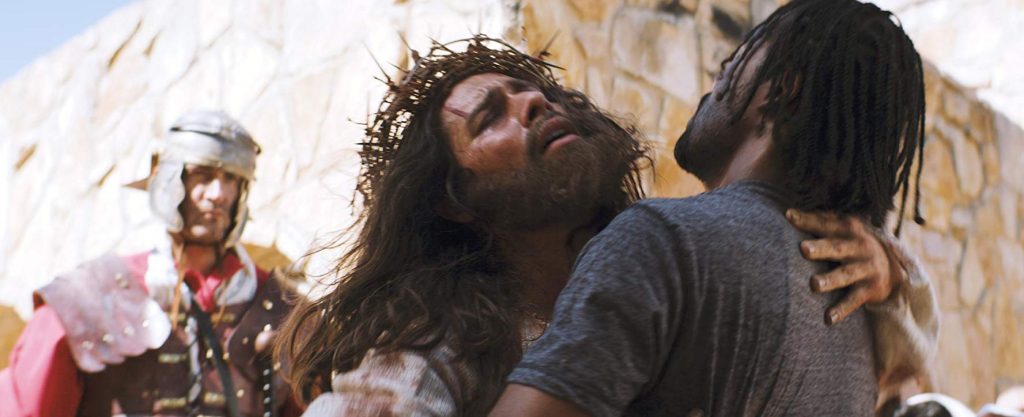
The character of Amy fills an important role as being the one person whose faith in God and Christ is unwavering. Nice use of her Bible app to provide Scripture text when confirming events during all of the time jumps. Isla Levine infuses an authenticity into Amy that should prove resonant to the faith-based audience.
As Ram Goldstein, Morgan Roberts delivers a solid, albeit oft times frenetic, performance that could benefit by his pulling back. There always needs to be the odd man out and in this case that falls to the character of Felix. As Felix, Cesar D’La Torre serves as a nice complement to Goldstein, Usher, and Levine.
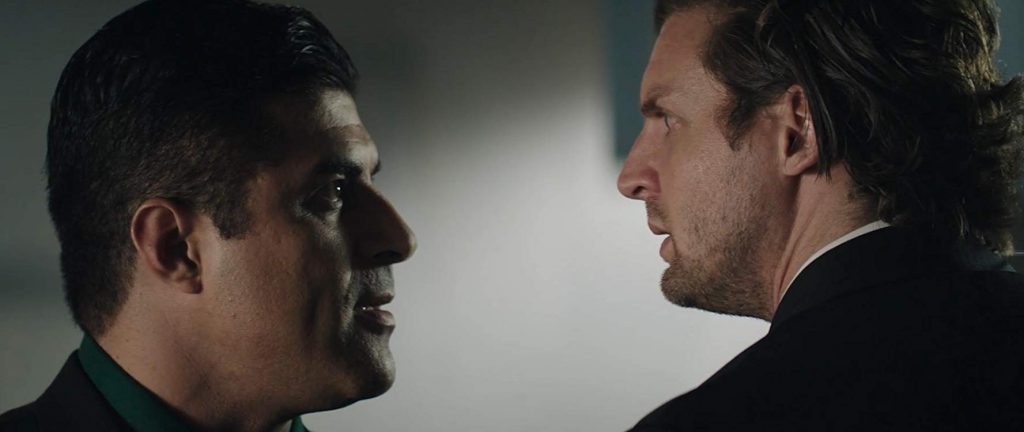
Gerardo Davila perfectly embodies Ahmed, bringing him to life with a rage and fury that is at first controlled, but then descends into a madness that bodes well for fueling Ahmed’s fire of hatred for Christ and all things Christian. Although he bears striking physical resemblance to Bradley Cooper, that’s where the similarity ends for Donny Boaz and his role as Brandt. Disappointing, particularly given his background and series work on the “Dallas” reboot and “The Young and the Restless”, his delivery is empty, and cadence is off-kilter and unnatural. Having said that, put him in combat gear with no dialogue and he is rock solid.
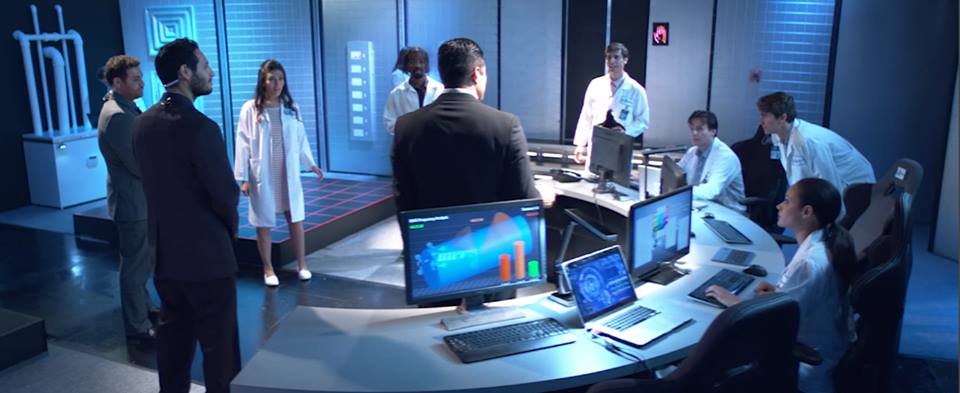
Writer/director Jim Carroll keeps core religious themes and moral values in play at all times, some of which ring particularly loud in this day and age, but never resorts to hitting us over the head with them. Although feeling forced at times with the excessive corrections of the time continuum, some flawed attempts at humor, and some obvious historical faux pas, kudos to Carroll for finding this “new” way into religion in film with a genre crossover as a means to expand the film’s potential audience beyond the expected faith-based. And dare I say, the film is ripe for a sequel. With this scientific team and time travel, Carroll can take us anywhere; hopefully next time with more adherence to time travel rules.
Written and Directed by Jim Carroll
Cast: Morgan Roberts, Isla Levine, Lamar Usher, Cesar D’La Torre, Gerardo Davila, Donny Boaz
by debbie elias, 1/22/2020












